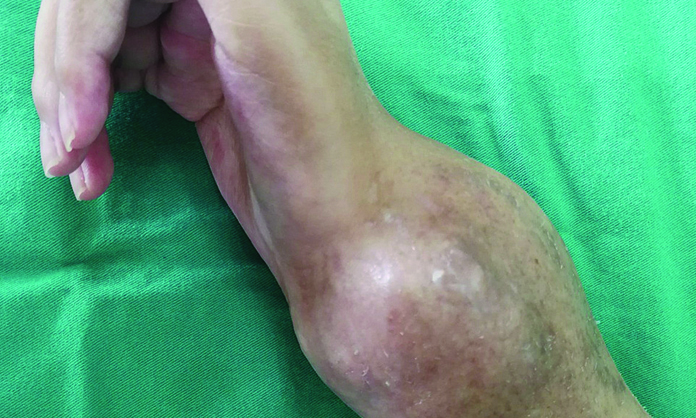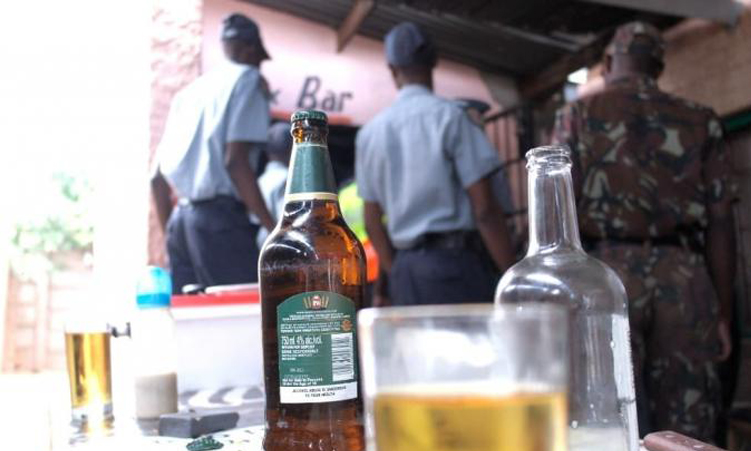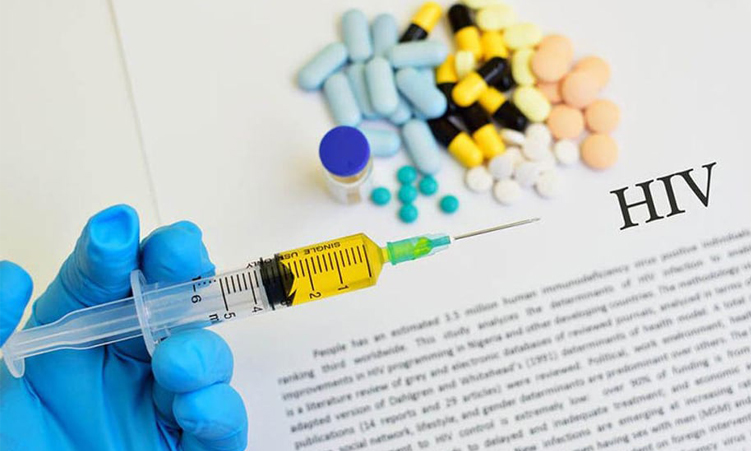• CHARLOTTE NAMBADJA
Although not very common, bone cancers have affected about 361 of 100 000 Namibians on average over the past decade.
This equals 15 new cases per year, with patients older than 65 being most affected, says Cancer Association of Namibia (CAN) chief executive Rolf Hansen.
Connective and soft tissue cancers average at 48 new cases per annum.
Sarcoma is a type of cancer that originates in the bones and soft tissues, including fat, muscle, blood vessels, deep skin tissues,
nerves and fibrous tissues. It is relatively rare compared to other types of cancer. Therefore, it is more difficult to detect and start
treatment timely.
“July is recognised as Sarcoma and Bone Cancer Awareness Month. The awareness month aims to improve public knowledge about these cancers, support research efforts and advocate better resources and treatments for those affected by this diagnosis,” Hansen says.
The goal is to educate the public about the symptoms and treatment options, as well as the importance of early detection, he adds.
According to Hansen, the prognosis for sarcoma patients varies widely, depending on several factors, including the type of sarcoma, its location, stage at diagnosis and how well it responds to treatment.
“Early detection and treatment are crucial for improving outcomes,” he says.
There are two main
types of sarcoma:
- Bone Sarcomas: These originate in the bones. Examples include osteosarcoma, which typically affects the long bones in the arms and legs, and Ewing sarcoma, which can occur in the bones or the soft tissues around the bones.
- Bone cancer can begin in any bone in the body, but it most commonly affects the pelvis or the long bones in the arms and legs. Bone cancer is rare, making up less than 1% of all cancers.
- Osteosarcomas develop in bone; liposarcomas form in fat. Rhabdomyosarcomas form in muscle, and Ewing sarcomas form in bone and soft tissue. Bone and joint cancer is most frequently diagnosed among teenagers.
- When timely diagnosed, the survival rate for bone and joint sarcomas is 68,2%. Because sarcomas are difficult to distinguish from other cancers when they are found within organs, their incidence is probably underestimated, says Hansen.
- Having certain inherited disorders can increase the risk for soft tissue sarcomas. These include retinoblastoma, tuberous sclerosis, Werner syndrome, and nevoid basal cell carcinoma syndrome.
- Other risk factors for soft tissue sarcomas include past treatment with radiation therapy for certain cancers; exposure to certain chemicals such as thorium dioxide, vinyl chloride, or arsenic and long-term lymphedema in the arms or legs.
- Past treatment with radiation can increase the risk of osteosarcoma and other types of bone cancers. Other risk factors for
osteosarcoma include treatment with anticancer drugs called alkylating agents. Having a certain change in the retinoblastoma gene is also a risk factor. So is having certain conditions including Paget disease, Diamond-Blackfan anaemia and Werner syndrome.
Treatment:
- Chemotherapy: Involves intravenous administration of chemicals to kill the cancer cells.
- Radiation therapy: Involves the usage of high-powered beams of energy like X-rays to kill the cancerous cells.
- Limb salvage surgery: Part of the cancerous bone is removed and replaced with metal.
- Amputation: Performed if tumours are very large or located in a complicated point on the bone.
- Soft Tissue Sarcomas: These develop in the soft tissues of the body. Examples include:
n Liposarcoma (fat)
n Leiomyosarcoma (smooth muscle)
n Angiosarcoma (blood vessels)
n Rhabdomyosarcoma (skeletal muscle)
n Fibrosarcoma (fibrous tissues)
Symptoms:
The symptoms of sarcoma can vary widely, depending on the location and size of the tumour. Common symptoms may include:
- A noticeable lump or swelling
- Pain in the affected area
- Fatigue
- Unexplained weight loss.
Stay informed with The Namibian – your source for credible journalism. Get in-depth reporting and opinions for
only N$85 a month. Invest in journalism, invest in democracy –
Subscribe Now!






